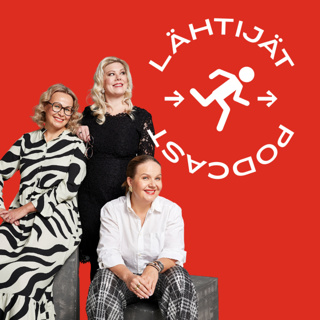
How Big Law Firms Shape Capitalism, With David Enrich
After previously exploring the worlds of 'consultants for sale' and 'scientists for sale,' Luigi and Bethany turn their attention to another broken system of 'enablers' - the world of lawyers for sale. With award-winning investigative journalist David Enrich, they discuss David's latest book, "Servants of the Damned: Giant Law Firms, Donald Trump, and the Corruption of Justice." Enrich presents several case studies showing how 'Big Law' firms have used their wealth and influence to capture the justice system, serving the interests of their wealthy clients at the expense of ordinary Americans. With Bethany and Luigi, he discusses: How can we restore the integrity of our legal institutions? What are the broader implications for the rule of law in a society dominated by economic and political interests?Show Notes - also revisit:The Capitalisn't of Consulting: McKinsey and Beyond, with Walt BogdanichScience for Sale, with David Michaels
30 Marras 202356min

The Capitalisn't of Crypto: SBF and Beyond, with Zeke Faux
In his new book "Number Go Up," Bloomberg News investigative reporter Zeke Faux takes readers on a wild ride through the world of cryptocurrency, from its origins in the dark corners of the internet, its meteoric rise to mainstream popularity, and finally its equally precipitous fall. A few days after the 'convicted' verdict in the trial of beleaguered crypto entrepreneur Sam Bankman-Fried (SBF), Faux joins Bethany and Luigi to make a case for why we should judge cryptocurrency by what it has done and not what it can do. They discuss whether it is too soon to write crypto off, what larger commentary it offers about capitalism, and why Luigi, who teaches a popular MBA course on fintech, feels "crypto is money that can only be created by computer scientists who don't understand history."Show Notes: Revisit a 2017 Stigler Center mini-course by NYU Stern Professor David Yermack on the potential implications of blockchain technologies on the future of finance.
16 Marras 202352min

When Capitalism Becomes Tyranny, with Sohrab Ahmari
In his new book, Sohrab Ahmari argues that the concentration of economic power in the hands of a few corporations has created a new form of tyranny in America. "Coercion is far more widespread in supposedly noncoercive societies than we would like to think—provided we pay attention to private power and admit the possibility of private coercion," he writes.Ahmari, founder and editor of Compact magazine, joins Bethany and Luigi to discuss his book, "Tyranny Inc.: How Private Power Crushed American Liberty--and What to Do About It." In this episode, they discuss the complex relationship between capitalism, personal freedoms, and political power. The conversation sheds light on what classical liberalism ignores, how today's Right is discovering what the Left may have forgotten, and ultimately, where today's political Left and Right may be able to work together.Show Notes: Also check out two previous episodes mentioned in this conversation:Is Common Good Capitalism The Answer? With Oren CassA Conservative Critique Of Capitalism, With Patrick Deneen
2 Marras 202346min

The Capitalisn't Of The U.S. COVID Response, With Bethany McLean
In her brand new book, "The Big Fail: What the Pandemic Revealed About Who America Protects and Who It Leaves Behind," Bethany and her co-author Joe Nocera argue that the COVID-19 pandemic was not simply a natural disaster but also a man-made one.Based on rigorous research and compelling storytelling, Bethany, who is renowned for her incisive reporting, reveals uncomfortable truths that have emerged from the pandemic about capitalism, inequality, and corporate power. In this one-on-one conversation with Luigi, she dissects the policies, decisions, and systemic structures that exacerbated the pandemic's fallout for the most vulnerable in society, shedding light on who benefited and who was left to fend for themselves.
19 Loka 202342min

Science for Sale, with David Michaels
How does science become public policy? It's not always as straightforward as it might seem. In his book "The Triumph of Doubt: Dark Money and the Science of Deception," leading public health expert and former Clinton/Obama administration official David Michaels shows how corporate interests often "manufacture uncertainty" in order to protect their profits. Using wide-ranging case studies from Big Tobacco, Volkswagen, American football, and talcum-based baby powder, Michaels exposes the disinformation playbook deployed by corporate-funded science to sow "doubt, denial, delay, distraction, deflection, and defense." With him, Bethany and Luigi discuss how we can fight back against manipulated science and replace the triumph of doubt with the triumph of truth.Show Notes: Also, check out our previous episode on the "Capitalisn't of Consulting" and the case of McKinsey, mentioned by Luigi in this episode.
5 Loka 202354min

A Conservative Critique Of Capitalism, With Patrick Deneen
In his new book, Regime Change: Toward a Postliberal Future, renowned political philosopher Patrick Deneen argues that the liberal ideology that has shaped capitalism for centuries has also failed to deliver on its promises of freedom, equality, and prosperity. Is he able to offer a compelling alternative that serves the interests of the common good over those of wealthy elites?Deneen, whose previous book "Why Liberalism Failed" was acclaimed by the likes of former U.S. President Obama, joins Bethany and Luigi to discuss his proposed 'Regime Change' and its implications for capitalism and the market economy. Can his vision of a postliberal future offer a more just and sustainable economic system, one that addresses the pressing challenges of our time? Can we have progress without progressivism?
21 Syys 202358min

The Most Important Guidelines You Didn’t Know About, With Susan Athey
As companies become increasingly big through mergers and acquisitions -- especially in technology, health care, and several other industries -- how should rules and regulations change with the times?Freshly minted and hot off the press: The U.S. Department of Justice (DOJ) and the Federal Trade Commission (FTC) recently released an updated set of draft "Merger Guidelines," which could reshape the landscape of corporate mergers and acquisitions both in the U.S. and globally. Esteemed Stanford professor and Chief Economist at the DOJ's Antitrust Division, Susan Athey, joins Bethany and Luigi to discuss these changes. Why did the DOJ and FTC make them? How will they impact the way companies approach mergers and acquisitions? And what do they mean for consumers, competition, labor, and the broader economy?Show Notes:Visit our ongoing online symposium on the Merger Guidelines, with a wide range of perspectives and debates from leading experts on the topicHear more from Susan Athey at our 2023 Antitrust and Competition Conference
7 Syys 20231h 2min

Key Lessons From The “Chicago Boys” Chile Experiment
Is there a fundamental tension between democratic freedom, economic growth, and social equality?Chilean economist and UCLA Professor Sebastian Edwards joins Bethany and Luigi to discuss his recent book, "The Chile Project: The Story of the Chicago Boys and the Downfall of Neoliberalism." The Chicago Boys were a group of free-market economists trained at the University of Chicago who shaped economic policy and reforms in Chile during General Augusto Pinochet's rule. In the book, Edwards (who also received his Ph.D. in economics from the University of Chicago in 1981) outlines the complexities of implementing market-oriented policies in a society undergoing rapid change. With him, Bethany and Luigi discuss: Could the Chilean experience offer lessons for other nations grappling with similar policy choices?We’d like to thank our former Journalist in Residence, Rodrigo Cardenas (Editor at Chilean publication La Tercera), for his continued engagement with the Stigler Center. Upon our request, Rodrigo kindly submitted a couple of insightful questions for consideration in this interview.Show Notes:Read an excerpt from Edwards' book on ProMarket.In conversation with Sebastian Edwards, Arnold C. Harberger reflects on his time at the Department of Economics at the University of Chicago.Also read "The Complicated Legacy of the "Chicago Boys" in Chile," by Chilean journalist and former Stigler Center Journalist in Residence, Daniel Matamala.
31 Elo 202354min





















